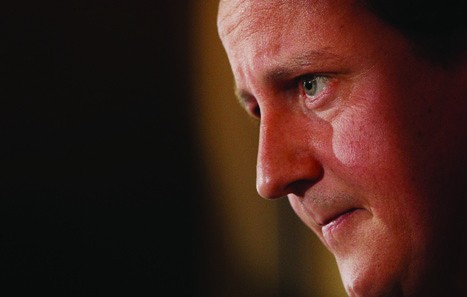The somewhat strident tone emerging from recent political party conferences can leave us in no doubt: the next General Election is coming. In fact, for the first time ever, we know exactly when it’s going to be. Thanks to the new fixed-term parliaments, introduced just after the last election, we know for sure that it’s eight months away. So now begins our regular but increasingly difficult ritual of trying to insert a cigarette-paper between the main parties’ policies that will affect the science, technology, engineering and manufacturing sectors and those who work in them.
And what we can see so far from the Labour and Conservative conferences is that the party chiefs obviously don’t think that STEM policy is something that really bothers voters, because wrack our brains though we do, we can’t really think of anything either party has said which indicates it’s crossed their minds. The main leaders’ speeches mainly focused on matters which affect individuals, such as tax rates, or on health policy (related, but somewhat tangential to engineering concerns) or on defence, which at least showed that at least one major manufacturing sector needn’t worry about demand collapsing for a while. It’s an ill wind that blows nobody any good, as the adage says.

One interesting bit of PR that’s landed in our inboxes this week was from the manufacturers’ organisation, the EEF, which with its tongue firmly in its cheek worked out a ‘politicians’ bingo card’ of terms that they thought the parties’ leaders and economics and industry spokesmen were likely to use in their speeches. Somewhat against expectations, this highlighted something rather interesting: neither David Cameron, George Osborne, Ed Miliband, Ed Balls nor Chuka Umunna mentioned the terms rebalancing, resource security, productivity or energy costs in their speeches, although they did mention manufacturing, innovation, exports, technology and skills. In the last round of unchallenged speeches they’re going to make before the election, we can be sure that the subjects they would touch on were considered carefully (unless they were in the part of Ed Miliband’s speech that he forgot to deliver) so we can probably surmise that these are things the party strategists don’t think that voters care about much.
”The big trumpeting elephant in the room is one subject that the speeches did touch on: EU reform
The big trumpeting elephant in the room is one subject that the speeches did touch on: EU reform. There’s doubtless an element of running scared from UKIP in this; the newcomer party has one big policy that affects engineering and that’s getting out of the EU. The large industry leaders are pretty much united in their opposition to this idea, as is the Labour party; the Conservatives’ policy is to offer an in-out referendum and to renegotiate the terms of Britain’s membership, although so far they’ve been very vague over what this will mean in practical terms (maybe they think we don’t care, or they’re waiting for their favourite tabloid newspapers to tell them what to do). But there can be no doubt that Britain’s relationship with our main trading partners is the most important engineering-related factor that’s up for discussion in this long election campaign.
When it comes to energy, the parties are so close together as to be virtually indistinguishable. Labour’s short-term freeze in energy prices shouldn’t have much effect on energy projects, as it’s finite, well-defined and therefore easy to factor into plans; so we can expect business as usual in nuclear projects, offshore wind farms and fossil-fuel technology development whoever wins the election.
But the lack of mention of rebalancing is a concern. The economy is still not balanced; finance and services outweigh manufacturing and still exert a disproportionate influence on the economy. We are not free of the risk of another financial crash, and that has to be a concern for anyone whose livelihoods depend on the stability of the economy (everyone in the private sector, in other words). The fact that our politicians didn’t think it worth mentioning is a distinct concern. Have they run out of ideas? Are they hoping to return to the laisséz-faire policies and let ‘the market’ work it out? Or do they just think that voters don’t care? We’ll be keeping an eye on them until next spring.










Water Sector Talent Exodus Could Cripple The Sector
Maybe if things are essential for the running of a country and we want to pay a fair price we should be running these utilities on a not for profit...